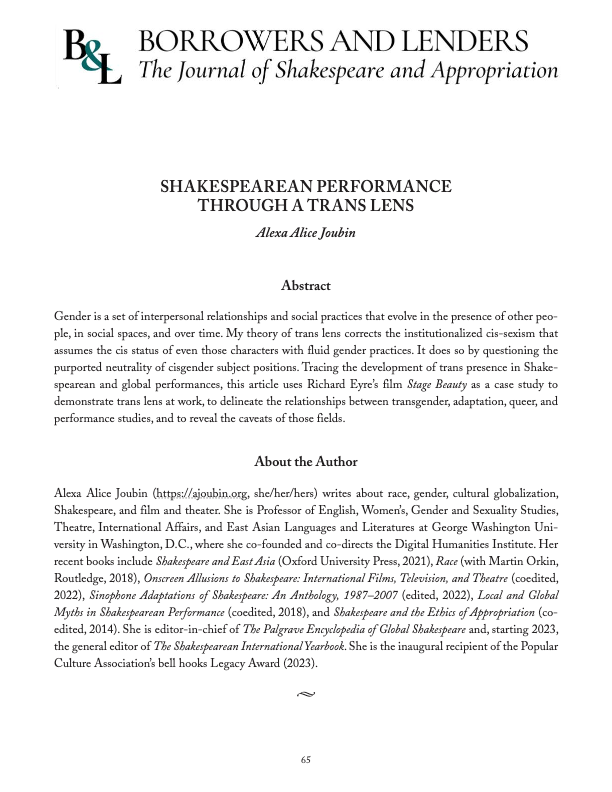“Shakespearean Performance through a Trans Lens”
Borrowers and Lenders: The Journal of Shakespeare and Appropriation 14.2 (2023). Arizona Center for Medieval and Renaissance Studies ACMRS Press. ISSN 1554-6985
Gender is a set of interpersonal relationships and social practices that evolve in the presence of other people, in social spaces, and over time.
This article advances a theory of trans lens which corrects the institutionalized cis-sexism that assumes the cis status of even those characters with fluid gender practices. It does so by questioning the purported neutrality of cisgender subject positions.
Tracing the development of trans presence in Shakespearean and global performances, this article uses Richard Eyre’s Othello-inspired film Stage Beauty as a case study to demonstrate trans lens at work, to delineate the relationships between transgender, adaptation, queer, and performance studies, and to reveal the caveats of those fields.
There is affinity between adaptation studies and transgender studies, because both reject the notion of purity and both are translational practices. Both fields examine texts and genders as forms of intertextual and interpersonal relationships that evolve over time.
Beyond adaptation studies, trans studies shares close, but contested, relationships with several other fields, especially queer and feminist studies. Feminism and transgender theory have always had a fraught relationship due to cis-sexism that is pervasive in the production of knowledge about gender. Earlier feminism used trans sufferings merely as a metaphor for a theory of gender performativity, which has now come under scrutiny by trans studies scholars.
Last, but not least, there is some risk in bringing performance theories to bear on transgender studies. Detractors often accuse trans people of “performing” to “pass” as someone else to deceive the society and to gain access to the “wrong” restroom. On one hand, the notion of performative gender expressions has been misappropriated by anti-trans groups to invalidate trans life, and, as a result, rejected by some trans activists as harmful to trans self-realization. On the other hand, transgender performances can serve socially reparative purposes through characterization and representation.
